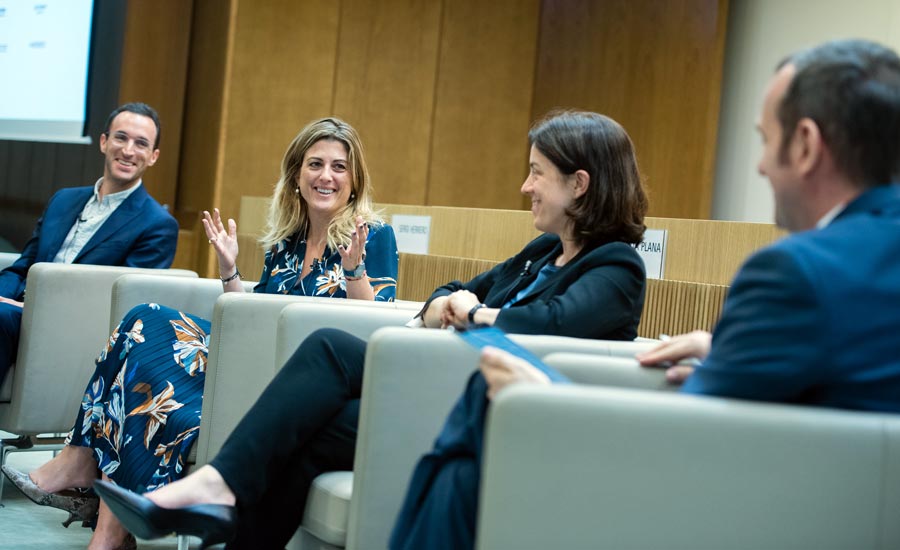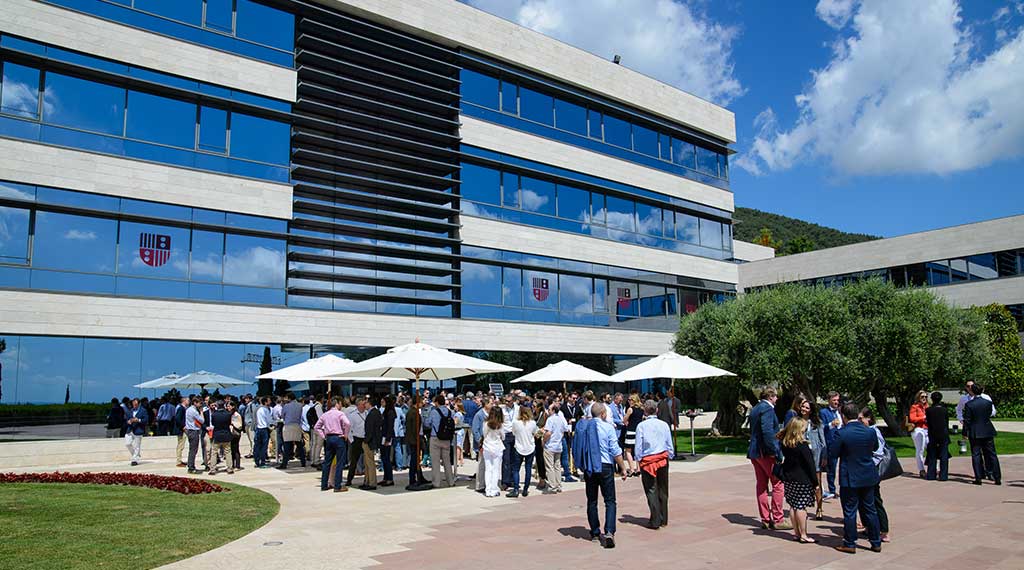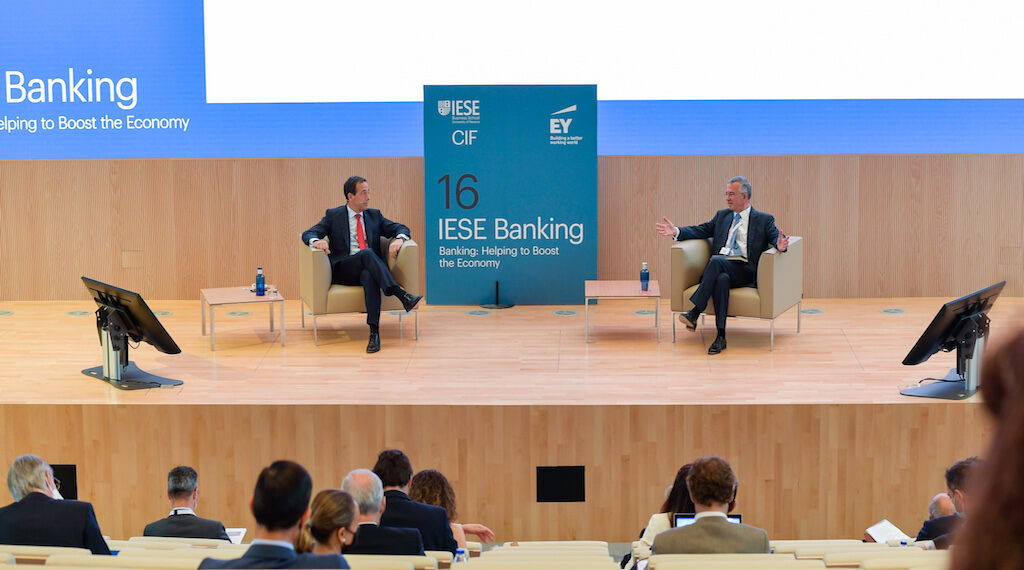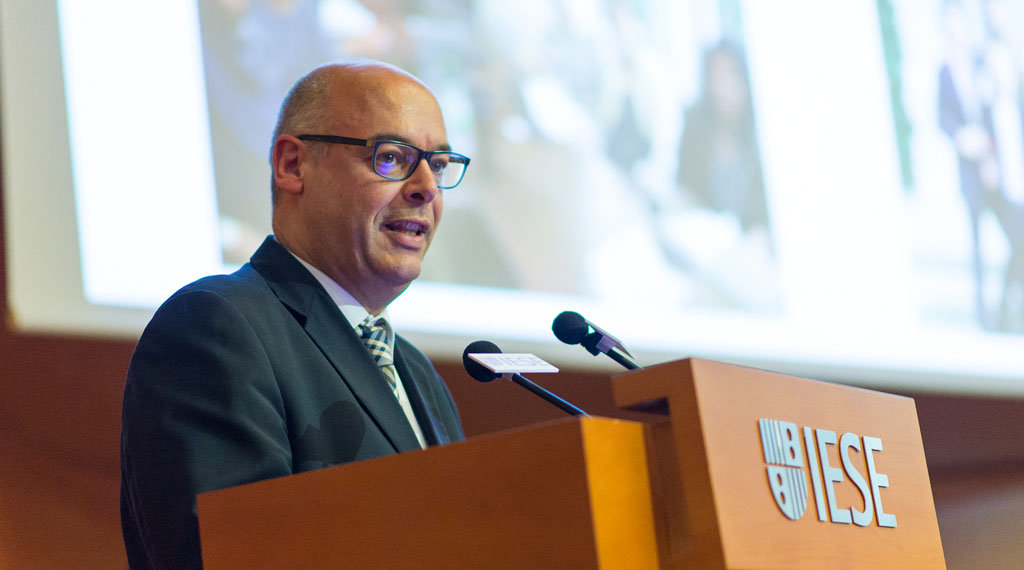Stories
From Banking with Ethics to Cracking Blockchain
As IESE’s Center for International Finance celebrates its 25th anniversary, a look to future trends
June 29, 2018

Is the banking system on sound footing 10 years after the last major crisis? What will the financial sector be like in the blockchain era? Can a bank be competitive and ethical? Will machines manage banks?
IESE’s Center for International Finance (CIF) celebrated its 25th anniversary this week with a conference in Madrid that brought together top academics and business leaders to look at these questions and many more. Prof. Juan José Toribio is president of the CIF.
Among other experts, the conference featured Jaime Caruana, former governor of the Bank of Spain; Christopher Cowton of the University of Huddersfield; the Universidad Complutense de Madrid’s Emilio Lamo de Espinosa and Emilio Ontiveros of the Universidad Autónoma de Madrid. Also present were varied representatives from the financial industry, from then and now, such as Banco Santander, Facebook, CaixaBank, Digital Origin, ING and Natixis.
Over the past quarter century, the CIF has analyzed and investigated the sector’s most pressing issues, such as emerging technology and changing regulations, along with underlying questions like the ethics of bank directors and the financial sector’s role in the economy and society.
The CIF conference took a look toward the future, and these are some of the trends that emerged for the short and long term:
- Balancing banks and markets. Europe is heading for an unbanking, and direct intermediation is going to have ever more importance. The search for financing has moved to capital markets due to the low interest rate environment – though rising interest rates will also be a focus.
- Searching for greater efficiencies. Despite having survived the crisis, the financial clean-up is not over. In the new banking ecosystem, there is a continuous search for efficiency. Margins and regulation are putting the squeeze on, and profitability has to improve.
- Creating an ecosystem of clients and data. The emergence of new players has not just increased competition in the financial sector, it has also modified the value chain. Now the business is organized around the client and data, which also obliges it to operate under new rules.
- Offering new financial experiences to the client. Banking activity has stopped revolving exclusively around attracting deposits and issuing credit, to become a more client-based experience. In this context, fintech can take the lead.
- Handling regulations with flexibility. The explosion of fintech has created a dual market with different rules for competitors. Changes in the regulatory and supervisory framework are approaching (a challenge for governments themselves) and the sector must be prepared to be flexible and make the most of the opportunities.
- Making innovation the norm. Artificial intelligence and blockchain are a window of opportunity to foster new and fruitful relations with the client. They serve to automate but also to offer new and more sophisticated services. It is just a matter of being aware of the changes and innovations.
- Facing the challenge of cyber-security. Banks’ most important asset is now data, information. For this, preserving confidentiality is a legal requirement and a technological challenge.
- Ensuring financial transparency. Today’s client is well informed and wants to know more. The trust of the client and the credibility lost during the crisis have to be regained. To achieve this, increasing transparency is fundamental.
- Mixing competition and cooperation. The best way to make the most of the opportunities is to turn competition into collaboration. The challenge is in deciding – for the good of all the participants, financial and non-financial – when to play together and when to go it alone.
- Marrying ethics, sustainability and solidarity. Any company that wants to participate in the banking business must be guided by the patterns of the new social sensitivity of investors and clients, from the green economy to inclusion as a collective paradigm.


